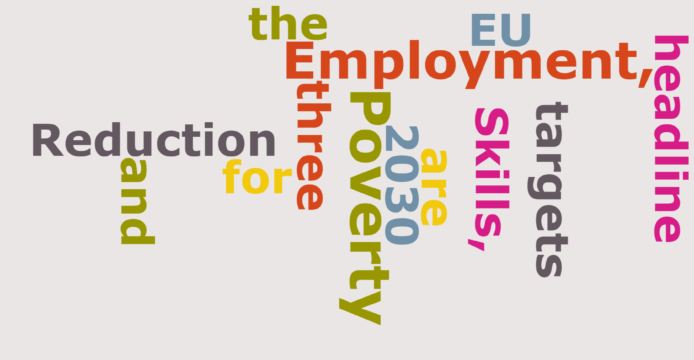This Summer EU Member States have agreed, at an important meeting held in Porto, to support European Commission’s proposal to make joint efforts on employment, skills and poverty reduction, which are the headline targets for the Union in 2030.
To put in in the words of European Commissioner for Jobs and Social Rights, Nicolas Schmit : “At the Porto Social Summit, all EU leaders and partners agreed that it was time to deliver on a strong social Europe. The Commission set three ambitious but realistic targets to keep the employment level high, to embed lifelong learning in our social market economy, and to reduce poverty, including child poverty. The pledges made today by the Member States demonstrate their commitment to meeting these targets. Now the hard work begins.”
The Commission’s plan sets out the EU’s ambition for a strong social Europe that focuses on jobs, skills and social inclusion, and sets three EU-level social targets to be achieved by 2030:
- At least 78% of people aged 20 to 64 should be in employment.
- At least 60% of all adults should participate in training every year.
- The number of people at risk of poverty or social exclusion should be reduced by at least 15 million, including at least 5 million children, compared to 2019.
In the Action Plan, the Commission invited the European Council to endorse the three EU headline targets and called on the Member States to define their national targets, as a contribution to this common endeavour. The national targets will contribute to the shared ambition of reaching the EU headline targets by 2030 in the areas of employment, skills, and poverty reduction.
It is worth mentioning that the combined, Member States’ commitments that were presented in Porto set the EU firmly on the path to achieving or even exceeding the headline targets set by the European Commission.

